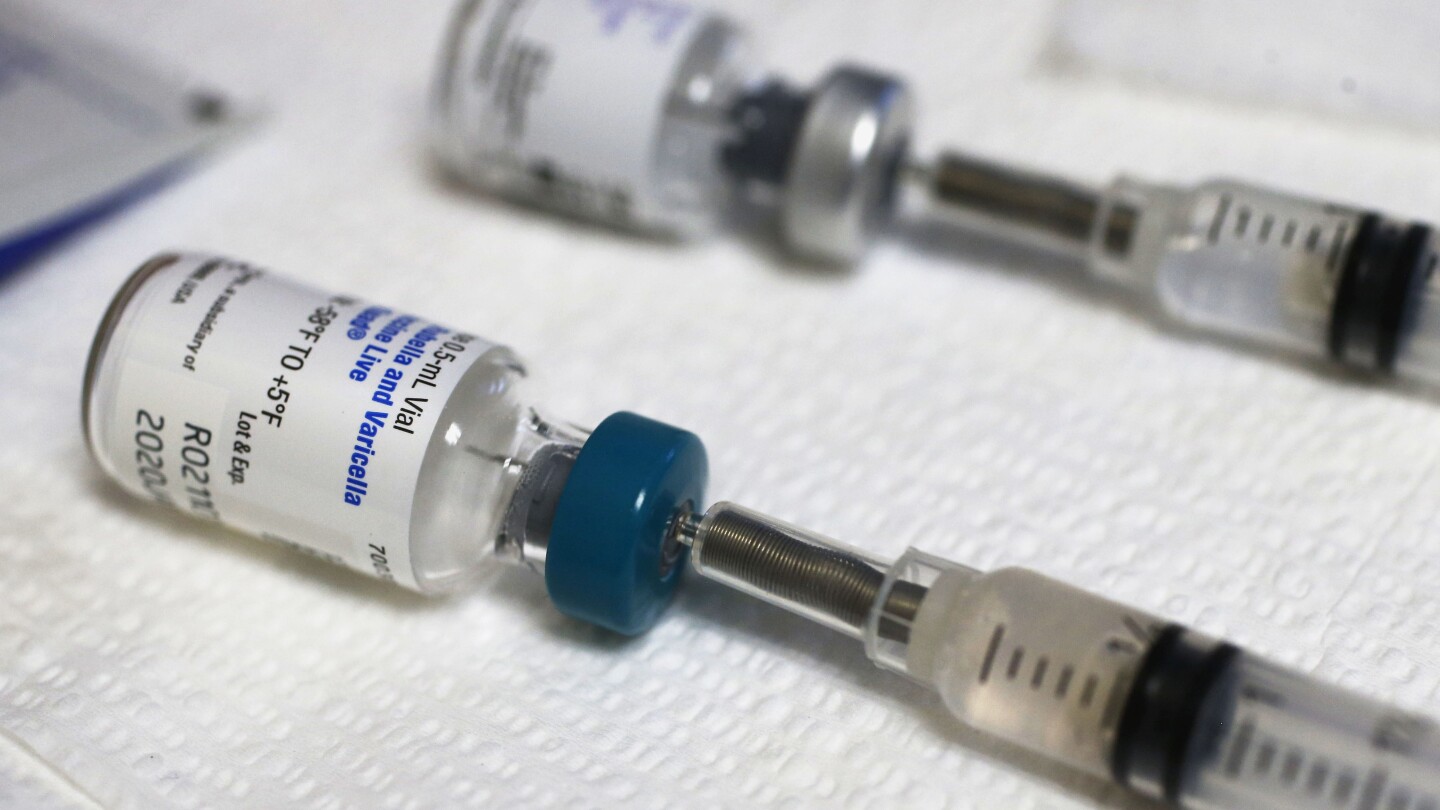Measles Outbreak Strikes Small Texas County Amid Vaccine Exemptions
A small county in West Texas is facing a significant public health challenge as it grapples with a recent measles outbreak. With fifteen confirmed cases reported, this incident has raised alarm bells not only among local health officials but also across the entire state and nation. The situation is particularly concerning given the increasing rates of vaccine exemptions among residents in this area, which compounds the risks associated with the spread of this highly contagious virus.
Understanding Measles and Its Risks
Measles is a viral infection that can lead to severe complications, including pneumonia, encephalitis, and even death. It is transmitted through respiratory droplets from coughs and sneezes, making it extraordinarily contagious. The measles virus can remain active on surfaces for up to two hours, meaning that individuals who are not vaccinated can easily contract the disease simply by being in the same environment as someone infected.
To put the risk into perspective, the Centers for Disease Control and Prevention (CDC) estimates that 90% of people who are not immune will become infected if they are exposed to the virus. This makes vaccination crucial in preventing outbreaks. The measles, mumps, and rubella (MMR) vaccine has been proven to be effective, providing immunity to those who receive it. However, as evidenced by the current situation in the Texas county, vaccine exemptions can create a dangerous environment.
The Role of Vaccine Exemptions
In Texas, parents can opt out of vaccinating their children for reasons of personal belief, medical conditions, or religious objections. This has led to a notable increase in the number of unvaccinated children, particularly in certain communities. According to the Texas Department of State Health Services, the exemption rate for vaccinations has been on the rise, leading to pockets of vulnerability where diseases like measles can spread rapidly.
- Personal Belief Exemptions: Many parents cite personal beliefs as their reason for opting out of vaccinations, often influenced by misinformation about vaccine safety.
- Religious Exemptions: Some families refuse vaccinations for religious reasons, which can create barriers to herd immunity within their communities.
- Medical Exemptions: While some children may not be able to receive vaccines due to medical reasons, this group is typically much smaller compared to those opting out for personal or religious reasons.
Consequences of High Vaccine Exemption Rates
The implications of high vaccine exemption rates are particularly troubling in the context of the current measles outbreak. Communities with lower vaccination rates are at an increased risk of outbreaks, as the herd immunity threshold for measles is around 95%. This means that without sufficient immunity in the population, the virus can thrive and spread rapidly.
Moreover, the recent outbreak serves as a stark reminder of the importance of vaccines in public health. Measles was declared eliminated in the United States in 2000 due to widespread vaccination efforts. However, with the resurgence of vaccine exemptions, public health experts are concerned that we may be heading backward.
Health Officials Respond
In response to the outbreak, local health officials are taking proactive measures to contain the situation. This includes:
- Public Awareness Campaigns: Health departments are launching educational campaigns to inform residents about the importance of vaccinations and the risks associated with measles.
- Vaccination Clinics: Free or low-cost vaccination clinics are being organized to encourage residents to get vaccinated.
- Monitoring and Reporting: Health officials are closely monitoring the situation and reporting new cases to track the outbreak’s progression.
The Texas Department of State Health Services is working collaboratively with local health authorities to address the outbreak swiftly and effectively. Such initiatives are crucial in mitigating the spread of measles and protecting vulnerable populations, including infants who are not yet eligible for vaccination.
Community Engagement and Education
Community engagement is vital in combating misinformation about vaccines. Many residents may have concerns about vaccine safety, often fueled by misleading information circulating online and through social media. Health officials and community leaders must work together to provide accurate, evidence-based information to address these fears.
Community forums, school-based vaccination programs, and partnerships with local organizations can play a pivotal role in increasing vaccination rates. By fostering an environment of trust and open communication, communities can combat the misinformation that leads to vaccine hesitancy.
Lessons Learned and Moving Forward
This measles outbreak highlights the critical importance of vaccination and the potential consequences of vaccine exemptions. As we move forward, it is essential to advocate for policies that encourage vaccination, educate the public about the science behind vaccines, and support families in making informed health decisions.
In addition, local health departments must continue to monitor vaccination rates and work to identify communities at risk of outbreaks. By prioritizing public health initiatives and focusing on community education, we can help prevent similar outbreaks in the future.
Conclusion: A Call to Action
The resurgence of measles in a small Texas county serves as a clarion call for all of us. It underscores the importance of maintaining high vaccination rates to protect not just our children, but also those who cannot be vaccinated for medical reasons. As citizens, we must advocate for sound public health policies, remain informed, and engage in conversations about the benefits of vaccines.
By coming together as a community and prioritizing the health of our children, we can ensure that measles remains a distant memory rather than a current reality. The path forward is clear: education, advocacy, and action are essential to safeguard our children and the broader community from the threat of preventable diseases.
See more WebMD Network



